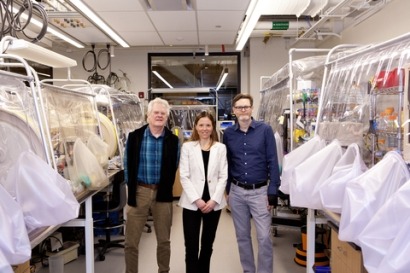
Terragia uses engineered thermophilic bacteria to break down cellulosic biomass and convert it into ethanol and other chemical products. The company’s technology avoids key features responsible for the high cost of conventional cellulosic biofuel production by one-step “consolidated” bioprocessing without added enzymes, and leveraging mechanical disruption during fermentation (i.e., “cotreatment”) in lieu of thermochemical pretreatment.
Director of the National Renewable Energy Laboratory Martin Keller comments, “Cellulosic biofuels are a route to low-carbon fuels for aviation and other difficult-to-electrify transport modes as well as CO2 removal from the atmosphere, both of which are critical for climate stabilization.
"One-step biological conversion of cellulosic biomass without added enzymes or thermochemical pretreatment has clear cost reduction potential relative to other process concepts.”
Terragia CTO and Co-Founder Lee Lynd,added, "Conversion of ethanol to fuels for planes, ships, and trucks is a leading option for approximately half of future global transportation energy demand, for which electrification is likely impractical, corresponding to a trillion dollar market. With full penetration of this market, Terragia's technology is projected to displace 3 gigatons of CO2 emissions annually and enable capture of a yet larger amount of CO2.”
In partnership with Dartmouth College and the University of Campinas, the ongoing development of Terragia’s technology is supported by funding from the U.S. Department of Energy Center for Bioenergy Innovation and the São Paulo Research Foundation, by grants from the U.S. Department of Agriculture and National Science Foundation, as well as private capital.
“Terragia has an exciting opportunity to succeed where others in the cellulosic biofuel industry have not. The company’s technology provides a radically different approach that uses biology to reduce the high costs and scale of conventional cellulosic biofuel production,” said Katie Rae, CEO and Managing Partner of Engine Ventures.

